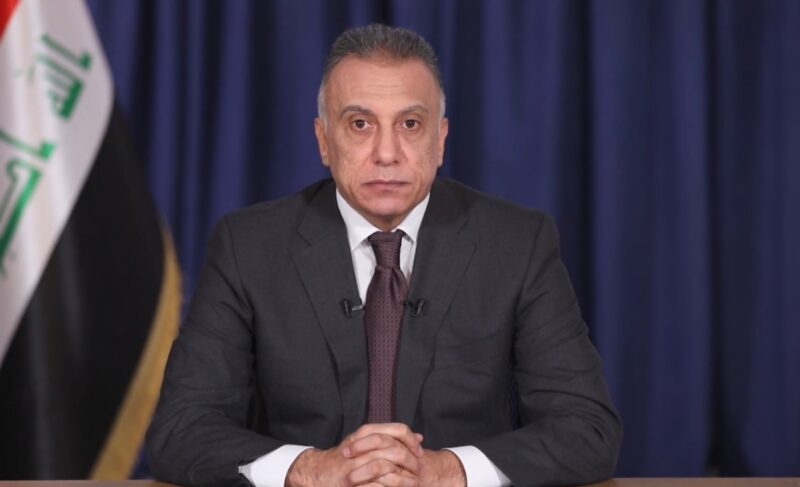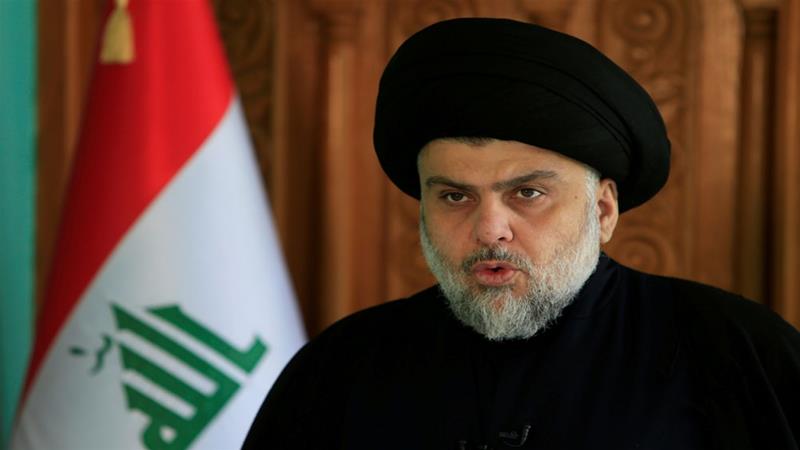Moqtada al-Sadr is a Shiite cleric and politician who leads the Shia Islamist movement in Iraq. He is also considered one of the most influential political figures in Iraq, and has been called “the father of the Iraqi resistance.”
Muqtada al-Sadr is a Shiite cleric, politician, and the founder of the Islamic Dawa Party in Iraq.
BAGHDAD— After his organization gained the biggest number of seats in Sunday’s parliamentary election, Shiite cleric Moqtada al-Sadr, who led a revolt against US troops after the 2003 invasion of Iraq, is set to become the country’s main political power broker.
With no obvious leader in sight, the creation of a new administration may be subject to weeks of political horse-trading. Mr. Sadr, an independent-minded nationalist, is up against Shiite political rivals and pro-Iran hardliners who want to bring the country closer to Tehran’s orbit.
In Iraq’s political system, the prime minister is chosen by the biggest bloc in Parliament. With such a splintered field, Mr. Sadr and other leaders may need some time to put together a majority alliance. After the previous election in 2018, it took eight months to establish a new administration.
The tenth point
Iraq’s election commission published preliminary results on Monday, showing that Mr. Sadr’s movement gained 73 members in the 329-seat Parliament, up from 54 seats won by a multiparty coalition he headed in 2018.
The Fatah Alliance, which is largely allied with Iran-backed militias seeking the departure of US troops, suffered an unexpected defeat in Sunday’s vote, reducing its potential bargaining leverage in negotiations to establish a government. According to preliminary results, the alliance received 14 seats in the new parliament, down from 48 before.
Mr. Sadr played up his main themes of Iraqi independence and political change in a televised victory address on Monday night, promising to usher in a new government free of both US and Iranian control.
“We thank God for backing reform via its most powerful bloc, which is an Iraqi bloc, rather than an eastern or western bloc,” he added.
Supporters and analysts credited Mr. Sadr’s movement’s well-organized election campaign, which included candidate recruitment and voter mobilization efforts, with helping it appeal to a broad cross-section of Iraqis and win the low-turnout election.
“Sadr is an Iraqi loyalist patriot who does not listen to or be swayed by foreign pressure,” Badr Al Zayadi, a former Sadr legislator, stated. “He just listens to Iraq.”
Mr. Sadr’s increased clout over the administration will allow him to seek inroads into areas of Iraq where he does not currently have control. Some Sadrists want to take over the premiership, but doing so would entail risking being associated with failed government services. As a cleric, Mr. Sadr has tried to stay away from everyday politics as much as possible.
“With the end of the day, it’s debatable whether they want to take on the burden and possible liability of fully controlling the administration,” said Lahib Higel, a senior Iraq analyst at the International Crisis Group.
The State of Law alliance, led by former Prime Minister Nouri al-Maliki, won 37 seats in Parliament. When Mr. Maliki left in 2014, he was widely criticized for corruption and sectarian governance, which aided the development of Islamic State.
The preliminary findings exclude ballots cast by members of the security forces and those who voted on a different day. The final vote count may cause a little movement in seat distribution, but it is unlikely to change the overall power balance.
Approximately 2,500 American soldiers remain in Iraq. While President Biden has decided to withdraw all combat troops from Afghanistan by the end of the year, many are likely to stay in training and support duties.
Iraqi Prime Minister Mustafa al-Kadhimi, who was spotted in Baghdad on Sunday, said that the country’s security forces had arrested a senior Islamic State commander.

Pro-Iran militias have increased assaults on US sites in Iraq and Syria, which have been met by US airstrikes, and their political backers have tried to turn the matter into a campaign issue.
During the election campaign, Mr. Sadr focused more on the country’s economic problems, and he is seen as more moderate than other Shiite groups that tilt toward Iran.
Despite his background as one of the US’s main opponents after the war that overthrew Saddam Hussein’s administration, US officials believe a government under Mr. Sadr’s control would be less likely to take measures to hasten a complete American departure.
The election was conducted earlier than planned on Sunday as a concession to protestors angry over Iraq’s deteriorating economy and widespread corruption. While the vote itself went off reasonably smoothly despite a few gunshots, participation was low at 41 percent, down from 44 percent in 2018, indicating widespread dissatisfaction with the political system.
Separately, Prime Minister Mustafa al-Kadhimi, the country’s current leader, said on Monday that the country’s security services had arrested a senior Islamic State commander during an operation in Turkey.
Mr. Kadhimi claimed in a tweet that security forces had apprehended Sami Jasim, a former deputy of the militant group’s dead leader, Abu Bakr al-Baghdadi, who was in control of the terrorist group’s finances.
The US authorities sought Mr. Jasim for coordinating Islamic State’s illegal trade in oil, gas, antiquities, and minerals. As ISIS took control a region of Iraq and Syria in 2014, such kinds of income helped fuel the group’s growth.
Mr. Jasim, a former member of al Qaeda in Iraq, left the country in 2017 and was detained this week in collaboration with Turkish officials, according to Fadhil Abu Radheef, a security expert close to Iraq’s intelligence agencies. Turkish authorities did not immediately respond to a request for comment on the detention.
Following years of military operations in both Iraq and Syria supported by the US military, as well as a separate war by Iranian-backed troops, Islamic State lost its final bastion of land in Syria in 2019.
Mr. Kadhimi, who was named prime minister last year but did not compete for reelection, has been positioning himself for potential reappointment in the post-election discussions.



